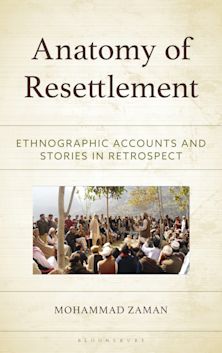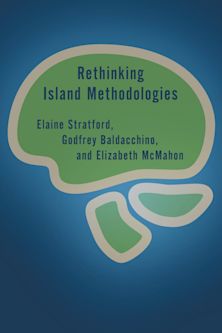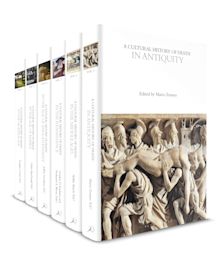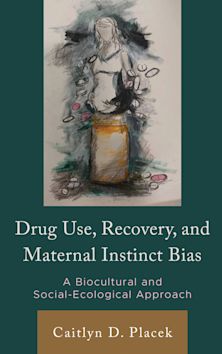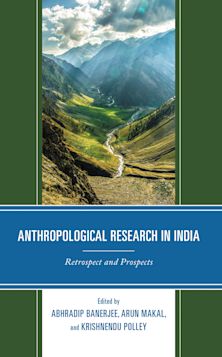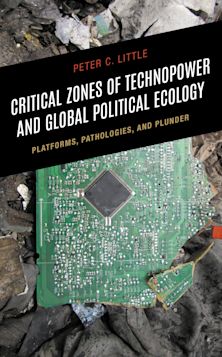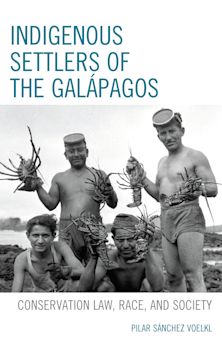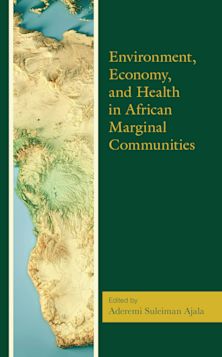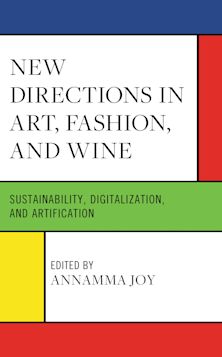- Home
- ACADEMIC
- Anthropology
- Anthropology - Other
- Biomedicine as a Contested Site
Biomedicine as a Contested Site
Some Revelations in Imperial Contexts
Biomedicine as a Contested Site
Some Revelations in Imperial Contexts
You must sign in to add this item to your wishlist. Please sign in or create an account
Description
While literature on medicine and colonialism has increased rapidly in the past nearly two decades, this volume presents yet another way of looking at ideas of medicine, health, and disease. It portrays the role played by power in various ways in which biomedicine became a site of contested ventures-a site which saw an interplay of medicine, ruling ideologies, and resistance by indigenous populations. Ideas of disease and health range from control of infectious diseases and epidemics, medications and indigenous therapeutics, clinical medicine and surgery, to reproductive health, with the added dimension of medical pluralism and elites as enabling these interactions and processes.
This book will be of interest to undergraduate and graduate students of history, sociology, anthropology, medicine, and public health. With essays on different regions around the world, it will serve as a guide to scholars and students in colonial studies, history of medicine, and world history.
Table of Contents
Chapter 2 1. Colonizing Mother Egypt, Domesticating Egyptian Mothers
Chapter 3 2. "Defying" Medical Autonomy: Indigenous Elites and Medicine in Colonial India
Chapter 4 3. Medical Knowledge and Professional Power: From the Luso-Brazilian Context to Imperial Brazil
Chapter 5 4. The Invincible Generals: Disease and the Fight for Empire in Cuba, 1868 to 1898
Chapter 6 5. The White Man in the Bedroom: Contraception and Resistance on Commercial Farms in Colonial Rhodesia
Chapter 7 6. Translations and Transformations: Toward Creating New Men in Early Twentieth-Century China
Chapter 8 7. Rejected or Elected? Processes of Therapeutic Selection and Colonial Medicines in French Vietnam, 1905-39
Chapter 9 8. Articulating Medical Ideas: Medicine and Medical Education in New Spain
Chapter 10 9. Disease, Doctors, and De beers Capitalists: Smallpox and Scandal in Colonial South Africa during the Mineral Revolution and British Imperialism, c. 1882-1883
Chapter 11 10. Submitting to Surgery in the 1890s: Four Vignettes
Product details
| Published | 16 Oct 2008 |
|---|---|
| Format | Ebook (PDF) |
| Edition | 1st |
| Extent | 196 |
| ISBN | 9780739131381 |
| Imprint | Lexington Books |
| Publisher | Bloomsbury Publishing |
About the contributors
Reviews
-
Biomedicine as a Contested Site shows us the dialectics of power and knowledge in colonial societies of the past. Not only social historians will benefit from the insights provided by this book because its theme is highly relevant for understanding of contemporary medical pluralism in which biomedicine coexists with Complementary and Alternative Medicine (CAM). Just as in the past when indigenous medicines had to deal with the structural dominance of western medicine, the CAM practitioners of today walk a fine line between competition, accommodation, and resistance.
Maarten Bode, University of Amsterdam
-
Historians have long recognized that medicine and imperialism were intimately connected; that colonial power was exercised on and through the body in an attempt to discipline subject populations. But this book breaks new ground in its nuanced analysis of the ways in which biomedical power was exercised and resisted. Covering an admirably diverse array of colonial contexts, the essays show that the persistence of traditional ideas and practices, and the emergence of a pluralistic medical market, served to limit the effectiveness of Western medicine in attaining power of the bodies of colonized peoples.
Mark Harrison, University of Oxford
-
This remarkable collective scholarship demonstrates how despite the dominance of bio-power and its exclusionary and exploitative tactics, a sub-altern health contestation evolved in the context of medical pluralism in colonial times. This edited volume is a valuable addition to the repertoire of medical history.
K. R. Nayar, Jawaharlal Nehru University
-
All too often in contemporary discussions of the interaction between medicine and society, the historical and colonial underpinnings of the present conditions are glossed over. These outstanding and impeccably researched essays, covering almost every part of the globe, provide a much needed corrective to this state of affairs and contribute to a deeper understanding of the complex and contradictory relationship between imperial power and medicine.
Zaheer Baber, University of Toronto













